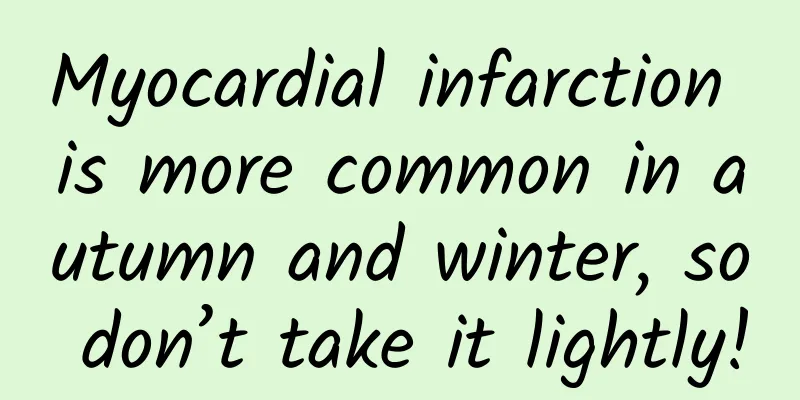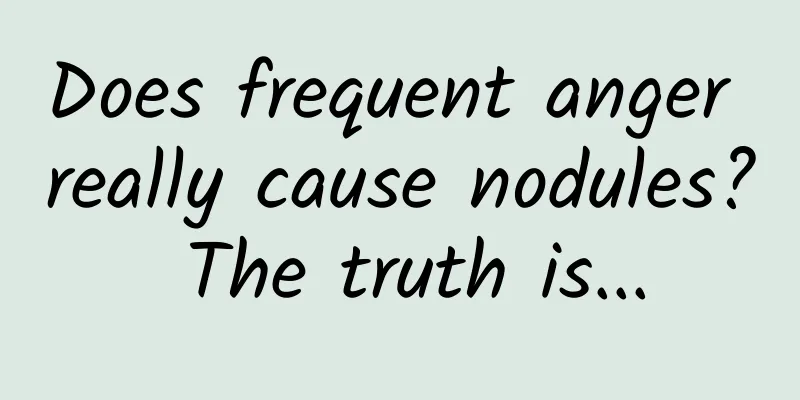Why should you chew slowly when eating? You will understand after reading this

|
When eating in the cafeteria, do you have one or two colleagues around you who eat very fast? How long does it take you to finish each meal? 15 minutes? 10 minutes? Or even faster? But do you still remember what the older generation often told us when we were young? Eat slowly! Yes, chewing slowly is actually very good for your health. Today, Xiao Ke will show you how to do it! Why should we chew slowly when eating? The digestion of food, especially starch, begins in the mouth. The saliva produced during chewing contains amylase, which can perform a preliminary decomposition of carbohydrates in food. Chewing slowly allows food to stay in the mouth longer, grinds the food finely, and increases saliva secretion, so that the ground food and saliva are fully mixed. The chewing process can also stimulate the brain to send signals to the gastrointestinal tract, increase the secretion of gastric juice and other digestive gland fluids, and prepare for the food to be fully absorbed after entering the gastrointestinal tract. On the contrary, if you eat too fast without chewing the food thoroughly, the large volume of food will cause strong mechanical stimulation to the digestive tract, which can easily damage the surface mucosa and cause chronic inflammation, and even cancer over time. If you accidentally swallow sharp objects such as fish bones, you will suffer a lot. When food that has not been fully ground enters the stomach, all the starch, plant fiber and other carbohydrates, proteins and fats are still mixed together, and the stomach needs to move more strongly and for a longer time to disperse them. But this should be the job of the teeth. If the stomach is forced to work overtime every day, it will naturally quarrel with the body, causing minor stomachaches and major ulcers. It will be too late to regret it then. Moreover, these foods that have not been completely ground require more digestive enzymes to break down and digest, which increases the workload of organs such as the pancreas that secrete digestive enzymes. Over time, the organs become overworked and illnesses come knocking. From another perspective, eating is a very pleasant behavior. If you eat very fast, you will easily feel like you are "snatching" the food. Just like when several children eat together, they often eat fast and a lot. This is not a good phenomenon because emotional fluctuations will affect the secretion level of hormones in the body and the work of various digestive organs, resulting in indigestion. Many young white-collar workers suffer from gastrointestinal diseases, which may be related to eating too fast. Eating fast seems to save a lot of time, but it will cause digestive system diseases over time, which will cost more time and money to treat, and the body will also suffer from pain, and work efficiency will decrease. In comparison, it is clear at a glance which eating method is "efficient". 5 ways eating fast can harm your body The human body's blood sugar level will rise significantly about 15 minutes after starting to eat and reach a peak after 30 minutes. At this time, the brain will send a signal of "I'm full" to the stomach and intestines, reducing appetite and stopping eating. However, if you eat too fast, your brain won’t have time to respond and you’ve already eaten too much food. Eating fast may cause the following five types of harm: Increase the burden on the digestive system Eating too fast will cause large pieces of food to enter the stomach, forcing the stomach to increase its peristalsis and increase the burden on gastrointestinal digestion. In the long run, it will lead to stomach problems. In severe cases, it can cause an acute attack of chronic cholecystitis or induce acute pancreatitis. Reduce food intake safety The enzymes in saliva can digest some toxic and harmful substances, but if you swallow too quickly, saliva will not play a corresponding protective role. According to statistics, 40% of cancers are related to carcinogens such as nitrite compounds, chemical synthetic agents, preservatives, etc. in food. Saliva plays an important role in blocking these bad substances. constipate The brain responds when chewing, instructing the digestive organs to prepare accordingly. Eating too fast will disrupt this process, causing digestive and metabolic disorders and causing constipation. Gaining weight Eating too fast may cause the amount of food consumed to exceed the stomach's tolerance, leading to weight gain. A study showed that when the calorie level was not much different, people who ate fast had a 4.4 times higher risk of gaining weight than those who ate at a normal speed, and fast-eating men were more affected than women. Compared with other eating habits such as liking greasy food and eating too much, eating too fast affects body weight more. As people age, their basal metabolic rate gradually decreases, and it is easier for them to gain weight. Cause chronic diseases Long-term overeating can lead to obesity, which in turn leads to high blood lipids, high blood pressure, arteriosclerosis, coronary heart disease, etc. In addition, long-term fast and excessive eating can also cause blood sugar to rise rapidly, increase the burden on the pancreas, and increase the risk of diabetes. Chewing slowly brings 4 benefits In addition to helping with weight loss, chewing slowly also has certain positive effects in protecting the stomach, intestines, teeth, etc. Reduce gastrointestinal burden Thorough chewing can grind food into smaller particles, which can better contact with digestive juices and reduce the burden on the stomach and intestines. Chewing slowly is especially suitable for people with poor gastrointestinal function and children. Helps protect gums Chewing slowly and frequently can strengthen the jaw, promote gum health, and promote blood circulation in the gums. The saliva secreted during chewing contains lysozyme and other antibacterial factors, which can effectively prevent bacterial growth. Helps relieve stress and relax For people who are under stress, chewing slowly is a friendly way of eating. Chewing more when eating can increase blood flow to the memory center, the hippocampus. Chewing at a certain rhythm can also promote the secretion of serotonin, a hormone that makes us feel happy and joyful. Enjoy the original taste of food The more you chew rice and steamed buns, the sweeter they become. If you chew original vegetables carefully, they will have a refreshing sweet fragrance. Chewing slowly and concentrating while eating will allow your taste buds to fully enjoy every flavor and better appreciate the deliciousness of the food itself, without the need for so many seasonings. The best speed for eating In the Mediterranean region, which is famous for its longevity, people can spend three or four hours eating a dinner, which is also considered one of the secrets of longevity for the locals. Even if you don’t have so much free time, you can still master the best eating “rhythm” by remembering 5 sets of numbers. Meal time: 20-30 minutes How long is the "slow" eating recommended by experts? The "Dietary Guidelines for Chinese Residents" recommends eating breakfast in 15 to 20 minutes, and lunch and dinner in about half an hour. Chewing times: Chew a mouthful of rice 20 times People who eat fast can first cultivate the awareness of "chewing slowly". Experts in the field of obesity treatment recommend chewing each mouthful of food 20 times. For the elderly, it is best to chew each mouthful of food more than 25 times. This may seem difficult to do, but trying to change your mindset and chew each bite as many times as possible can make a big difference. Interval between meals: 4 to 6 hours In the nutritional distribution of three meals a day, breakfast and dinner should account for 30% of the total day's energy respectively, while lunch should account for 40%. If the interval between meals is too long, you will feel hungry, which affects your labor and work efficiency. If the interval is too short, the digestive organs will not get proper rest, which will affect your appetite and digestion. Generally speaking, food stays in the stomach for about 4 to 5 hours, so a 4 to 6 hour interval between meals is more appropriate. Dinner: 17-19 Eating dinner too late is not conducive to digestion and absorption. If you go to bed soon after eating, the stomach is still working during sleep, which increases the burden on the stomach. It is recommended that dinner be at least 3 to 4 hours away from bedtime to ensure adequate digestion. Considering the work and rest habits of modern people, the best time to eat dinner is between 17:00 and 19:00 in the evening. Source: Chongqing Tianji Network Co., Ltd. Audit expert: Li Zhigao Statement: Except for original content and special notes, some pictures are from the Internet. They are not for commercial purposes and are only used as popular science materials. The copyright belongs to the original authors. If there is any infringement, please contact us to delete them. |
<<: Unintelligent "smart drugs", back off! Back off! Back off!
Recommend
Ocean Brothers Brick and mortar entrepreneurship strategist - brick and mortar store Douyin live streaming sales nanny-level practical account creation course
Ocean Brothers Brick and mortar entrepreneurship ...
Public Account SEO WeChat Search Ranking Optimization Tutorial
Simply put: the so-called WeChat SEO optimization ...
Choosing an enterprise-level mobile platform: an independent platform or an integrated platform?
The rapid development of mobile Internet not only...
What components are worth learning? I sorted out the design components of eight major manufacturers!
As a component of the design system, design compo...
Review of the 618 event, showing you the online event routines!
Since mid-May, JD.com has launched the slogan of ...
The first wave! 12 UI design tips that designers must pay attention to
Remember Michal Malewicz, the senior designer who...
What will happen to your body if you eat one prune a day? Will it really cause diarrhea?
Among many fruits, prunes are one of the few that...
Analysis of creative ideas for beauty business promotion!
“Everyone loves beauty.” In recent years, with th...
Practical operation of Douyin account in K12 education industry!
As the proportion of short videos in the content ...
Urgent reminder! ChatGPT is becoming popular, beware of being scammed! Baidu is also fighting against counterfeiting!
Recently, as the intelligent chat robot ChatGPT h...
Poposki: My experience after testing the HGST 7K6000 6T hard drive
Bobo spent two days testing the HGST 7K6000 6TB h...
The State Post Bureau calls for couriers to be allowed into residential areas. How to pick up takeout and express deliveries during the epidemic?
To prevent the spread of the epidemic, many commu...
Is Nokia dead? It just announced a 15.6 billion euro acquisition of Alcatel-Lucent to challenge Huawei?
[[131882]] It's been a long time since we hea...
The risk level of Sujiatun, Liaoning has been adjusted to low risk, and my country's epidemic prevention and control is nearing its end!
Regarding the reduction of the Notice on the risk...
vivo TWS Neo review: The price is halved and the configuration is upgraded, a bucket-shaped true wireless headset rarely seen in the market
In September 2019, vivo launched its first true w...









